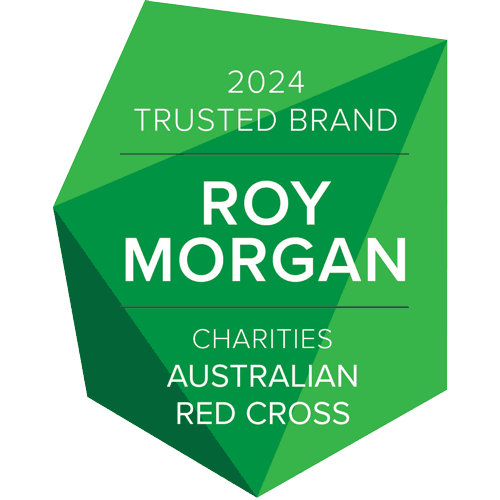With a text, Australian Red Cross delegate Mark was called up to help in Gaza. Here’s what he saw.
With a text, Australian Red Cross delegate Mark was called up to help in Gaza. Here’s what he saw.
After receiving a call-up, Australian Red Cross delegate Mark Myerson was one of several aid workers tasked with building a field hospital in Rafah.

For Mark Myerson, it began with a text message over lunch from the Australian Red Cross International Deployments team.
"Hi Mark. How are you? Norwegian Red Cross approached us to see if we had a delegate who would be available to be seconded to the International Committee of the Red Cross to deploy to Gaza for four to five weeks," the message read.
Myerson was with his wife Katrina at the time, having driven home to Brisbane after a camping trip.
"She said, 'I can tell by the look on your face. You really want to go, don't you?'" he said.
"I just said, 'Yes, I really, really want to go.'"
The next few months of Myerson's life in Brisbane were put on hold to travel deep within a war zone.
"I confess there were some butterflies in my tummy, thinking about him going to Gaza," his wife Katrina said.
"But I knew the need for assistance and for medical care was so great there."
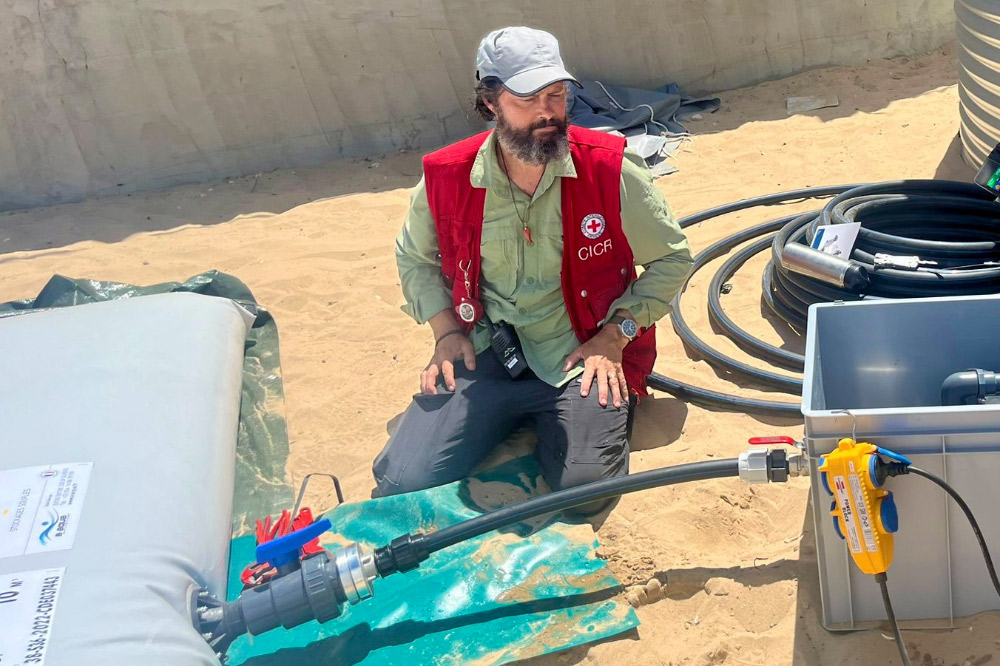
Building a field hospital in Rafah
Within two weeks, Myerson was travelling with an aid delegation through Egypt to the southern Gaza city of Rafah – where, with his expertise in water and sanitation, he joined a mission to build a functioning field hospital, operated by the International Committee of the Red Cross (ICRC).
With Rafah's existing hospitals under extreme stress, more beds were needed to provide care for the growing population of displaced Gazans. Myerson's team had five weeks to transform a barren plot of land into a medical facility.
"It was go, go, go — we had people regularly asking, 'When are you opening?'" he said.
The conflict, and the danger it posed, were ever-present.
"We would be seeing and hearing the active signs of conflict, feeling the shock wave from explosions," Myerson said.
"There are moments when perhaps you forget [about the conflict], because you are becoming used to the environment and you are so focused on the work."
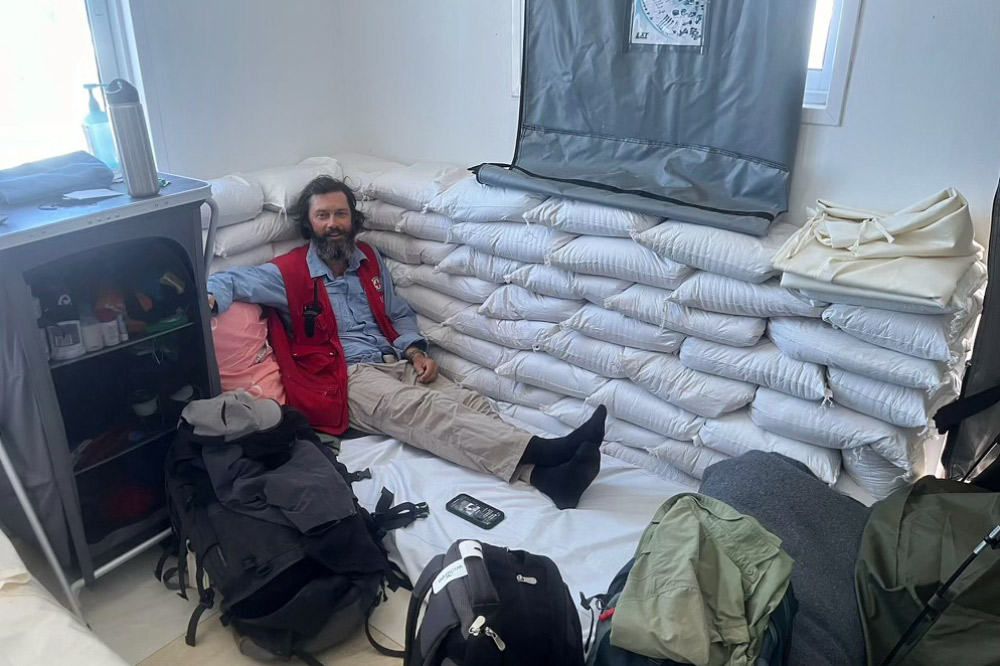
‘Moments of hope and humanity’ amid conflicts
Myerson's team worked from sun up to sun down to get the hospital up and running. On opening day, hundreds queued up to receive overdue care.
"One of the things that sticks in my mind is, we were also lucky to be there for the birth of the first baby at the hospital," he said.
"There was a real elation and joy, in the medical team and the tech team.
"Those moments of hope and humanity that you see amongst the conflicts, those things are very, very special."
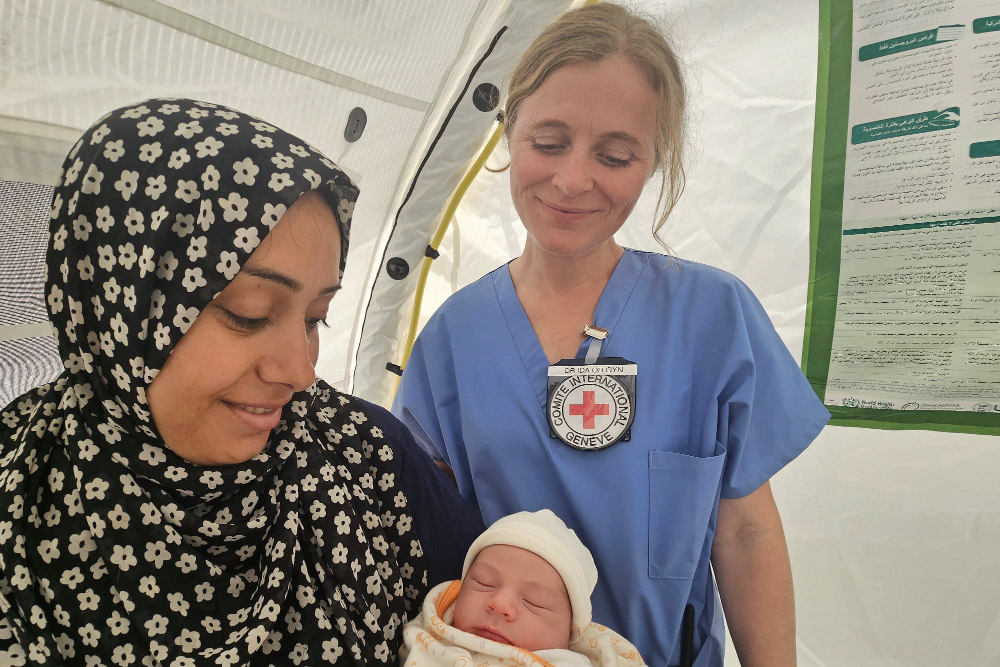
‘Constantly in your mind’
Having spent six weeks in a war zone, coming home proved difficult.
"Not only are you leaving people in a very challenging environment with the active conflict, the local population are also facing this day in and day out, and you get to come home," Myerson said.
"That is a challenging thought."
When disaster and conflict escalates, Australian aid agencies say they often experience a surge in interest from volunteers.
But international aid workers tend to make up the minority of frontline support.
"The vast majority of humanitarians are local. They're living within their communities, they are volunteers," said Australian Red Cross head of international programs, Adrian Prouse.
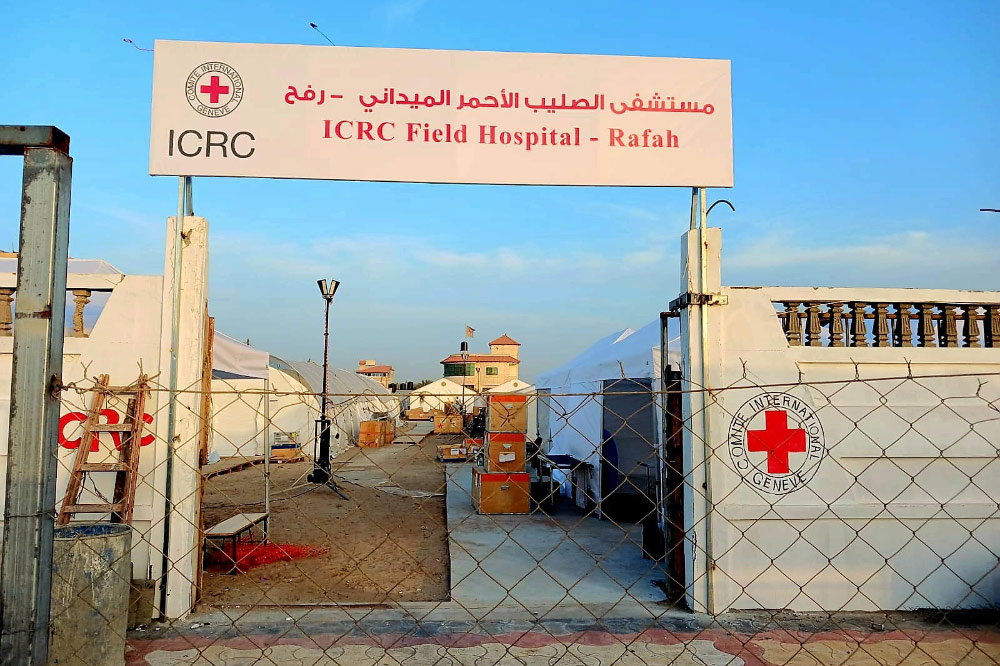
From local to global
Whilst we know that a local response is always the first and recommended approach, we are in an ever-changing world where the humanitarian needs from disasters and conflict are increasing in scale and complexity.
In an emergency, the international call for delegate support comes at the request of the National Society. And we quickly mobilise here in Australia to put forward the best delegates from our pool of specialist humanitarians, based on the needs on the ground.
We currently have a pool of over 100 active delegates across 23 technical sectors, which includes medical specialists, such as surgeons or nurses, engineers, water and sanitation specialists like Mark, and shelter and protection (gender and inclusion).
Our team here in Australia regularly monitor the roles and skills called for to support these disasters across the world to identify any gaps and ensure that our delegate pool has the range of expertise needed to meet future demand.
Our International Deployment team are in regular contact with other National Societies around the world – sharing insights and tools to support the recruitment of new delegates. This also helps to ensure there’s a diverse talent pool and we’re not all recruiting people with similar profiles.
Our generous supporters enable us to continue to build the right delegate pool here in Australia, assessing the right candidates for the roles, and ensuring that we are ready to meet the ever growing and evolving needs of disasters and conflicts around the world.
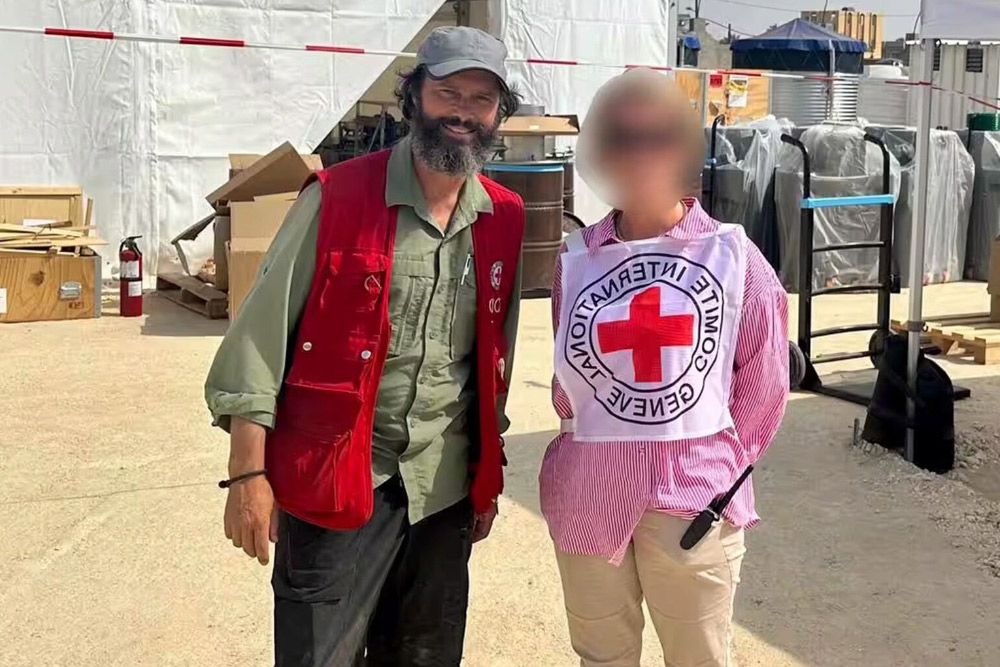
‘Why we do it’
Myerson's time in Gaza was his third international deployment in the last decade. He acknowledges the nerves are ever-present — but his motivation remains strong.
“Seeing such great need in these areas of the world, particularly conflict and disaster settings, for me, that was the driver,” he said.
In 2015, Myerson joined the rebuild team following devastating flooding in Malaysia.
His second visit to Myanmar's Rakhine State in 2018 was a twelve-month stint, in a dangerous region.
With long-term assignments, he said having the support of family is crucial. His wife Katrina is also an overseas aid delegate with the International Committee of the Red Cross
"We did a fair bit of time apart. I went to Rwanda, and then when I came back, Mark left for Malaysia, and then I went to Afghanistan," she said.
"It was a little bit like ships in the night. But I think understanding why we do it makes a big difference."
Australian Red Cross is there to prepare and deploy delegates, like Mark, to where they are needed most – facilitating safe assignments across the world. There to support them throughout their deployment, and transition into life back at home.
This story was adapted from an SBS News article.
Charity donations of $2 or more to Australian Red Cross may be tax deductible in Australia. Site protected by Google Invisible reCAPTCHA. © Australian Red Cross 2025. ABN 50 169 561 394
